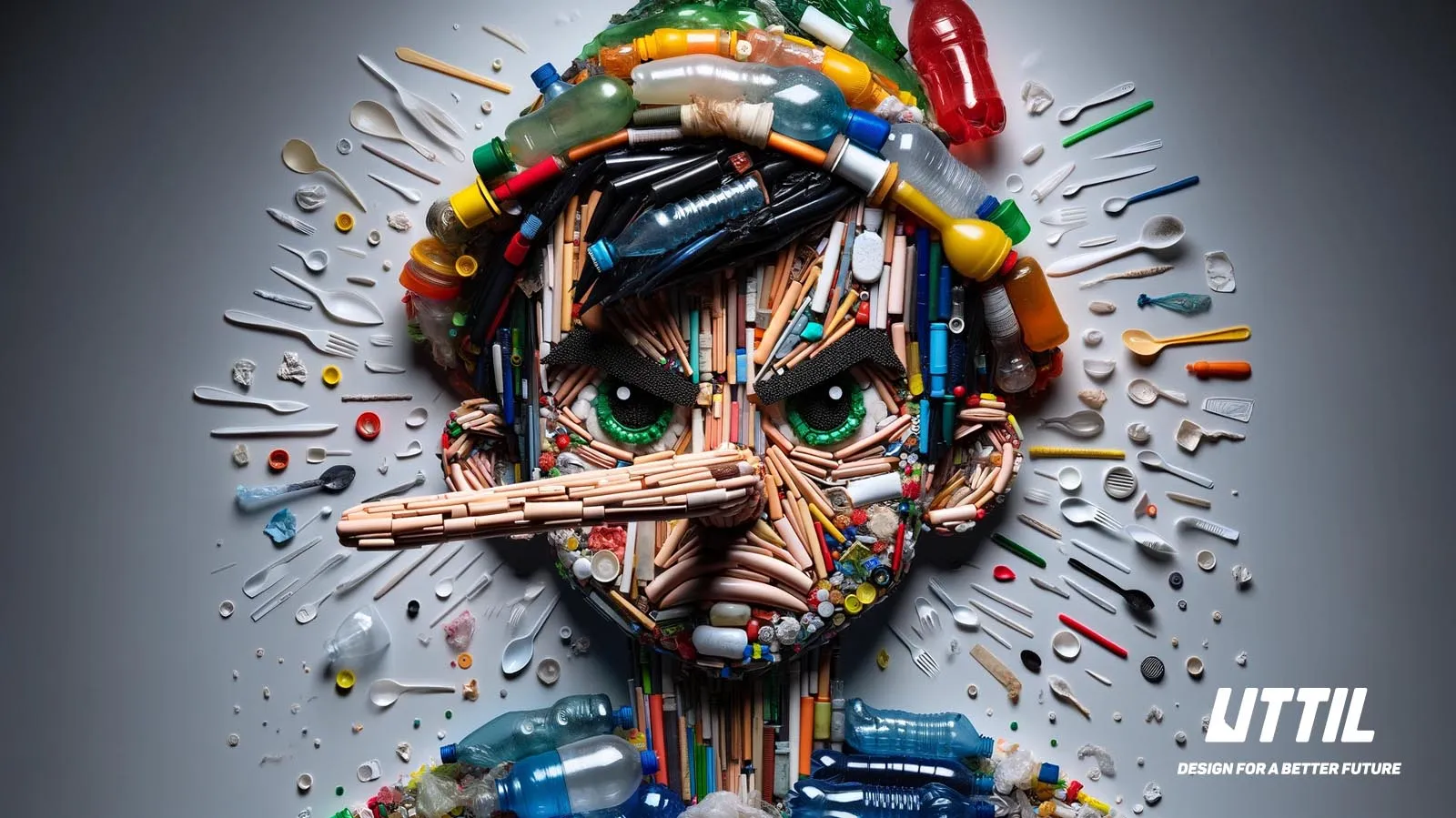Please Get Disturbed About Plastic Recycling: Unraveling Industry Myths and Exploring Real Solutions
In the contemporary discourse on environmental sustainability,
plastic recycling has been heralded as the panacea for the burgeoning crisis of
plastic waste. However, a deeper investigation into the practices, policies,
and narratives pushed by the plastic industry reveals a complex tapestry of
half-truths and inefficiencies that undermine the efficacy of recycling as a
standalone solution. This report delves into the myths perpetuated by the
plastic industry, scrutinises the current state of plastic recycling, and
advocates for a multifaceted approach to address the plastic waste dilemma.
The Recycling Myth Propagated by the Plastic Industry
The notion that all
plastics can be recycled into new products is one of the most pervasive myths
in environmental discourse. The reality, however, starkly contrasts with this
optimistic narrative. According to the United Nations Environment Programme, a
mere 9% of all plastic waste ever produced has been recycled, with the vast
majority ending up in landfills, incinerators, or the natural environment. This
statistic alone challenges the narrative of recycling as a silver bullet for
plastic pollution.
Structural Shortcomings in Plastic Recycling
The inefficiency of
plastic recycling stems from several structural issues. Firstly, the diversity
of plastic polymers complicates the recycling process. Plastics marked with
resin identification codes 1 (PET) and 2 (HDPE) are commonly recycled, but others,
such as codes 3-7, face limited recycling opportunities due to economic and
technical constraints.
Secondly, the
degradation of plastic quality during recycling — a process known as
"downcycling" — limits the potential for recycled plastics to replace
virgin materials. For instance, recycled PET, while suitable for making
textiles or containers, often cannot be repurposed into food-grade packaging
due to safety concerns.
Economic Disincentives and Global Disparities
The economic model
underpinning plastic recycling also disincentivises reducing plastic
production. The low cost of producing virgin plastic, driven by inexpensive
fossil fuel prices, makes recycled materials less competitive. Moreover, the
global trade in plastic waste has created environmental justice issues, with
wealthier nations exporting plastic waste to countries with less stringent
environmental regulations, exacerbating pollution in these regions.
Industry-Led Initiatives: A Closer Look
Major petrochemical
companies and plastic manufacturers have launched initiatives aimed at
enhancing plastic recycling rates. For example, the Alliance to End Plastic
Waste, comprising industry giants like BASF, Dow, and ExxonMobil, pledged $1.5
billion towards solving the plastic waste problem. Critics argue that these
efforts are overshadowed by the industry's simultaneous investment in new
plastic production facilities, indicating a primary interest in maintaining the
status quo rather than transitioning to a truly circular economy.
Shifting the Burden: The Psychological Barrier in Plastic
Recycling
An insidious tactic
employed by certain companies within the plastic industry involves shifting the
onus of responsibility for waste management onto the end-user, thereby creating
a psychological barrier that absolves these corporations from taking substantive
action themselves. This strategy is not only manipulative but also profoundly
ineffective. Companies inundate consumers with messages emphasising recycling
as a civic duty, subtly implying that the failure to curb plastic pollution
lies primarily with individual inaction rather than with the producers'
relentless output of non-recyclable or hard-to-recycle plastics. This narrative
perpetuates a cycle of guilt and responsibility among consumers, who believe
that if only they recycled more diligently, the plastic waste crisis could be
resolved.
This diversion tactic
unfairly burdens consumers and masks the underlying issue: the sheer volume of
plastic produced is unsustainable, and a significant portion is designed
without considering the end of its lifecycle. By focusing the discourse on
consumer recycling efforts, companies create a psychological barrier that
detracts from their responsibility to invest in and promote genuine solutions,
such as redesigning products for circularity or adopting alternative materials.
This approach cleverly
manipulates public perception, creating a sense of individual failure around
recycling that diverts attention from the systemic changes needed to tackle the
plastic pollution crisis at its source. Consequently, it is imperative to challenge
this narrative and demand greater accountability from the plastic industry,
ensuring that the responsibility for environmental stewardship is appropriately
shared between producers and consumers.
The Path Forward: Beyond Recycling
Given the limitations of
current recycling technologies and economic structures, a broader approach to
mitigating plastic pollution is necessary
which includes:
Reducing Plastic
Production: Implementing
policies that limit the production of single-use plastics and encourage the
development of sustainable alternatives.
Improving Product Design: Designing products for longevity, reuse, and easy
recycling can significantly reduce waste.
Extended Producer
Responsibility (EPR): Policies that make producers financially or physically
responsible for the treatment or disposal of post-consumer products can
incentivise sustainable product design and waste management practices.
Global Cooperation: International agreements, akin to the Basel Convention,
can regulate the transboundary movement of plastic waste, ensuring that
vulnerable countries do not disproportionately bear the burden of plastic
pollution.
The narrative that
recycling alone can solve the plastic waste crisis is a myth that serves the
interests of the plastic industry. It diverts attention from the root causes of
the problem: excessive plastic production and a linear economic model that undervalues
sustainability. While recycling is a vital component of waste management, it
must be part of a comprehensive strategy that includes reducing plastic
production, redesigning products, and implementing responsible waste management
policies. We aim to address the plastic pollution crisis only through a
multifaceted approach.
Sources:
United Nations
Environment Programme (UNEP). "Single-Use Plastics: A Roadmap for
Sustainability."
National Geographic.
"A whopping 91% of plastic isn't recycled."
The Alliance to End
Plastic Waste. "Our Mission."
Basel Convention.
"Control of Transboundary Movements of Hazardous Wastes and Their
Disposal."








